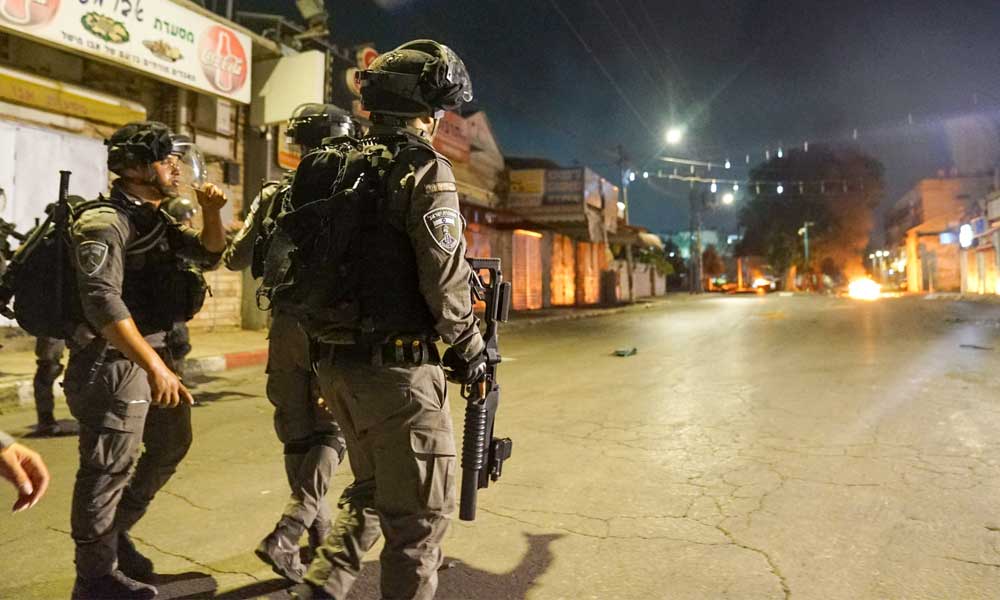Modern Hebrew, especially military and political jargon, tends to reflect the state of the nation. Thus, Israel no longer fights “wars” or launches “operations” in Gaza. The buzzword is now sevev, meaning a “round” and in the case of Gaza, yet another round—of seemingly endless clashes. The word sevev belongs to a vocabulary of despair. It is also related to the biblical verb sovev in that great biblical hymn to futility, Ecclesiastes. In Robert Alter’s excellent translation, “Round and round goes the wind, and on its rounds the wind returns”(1:6). In the same spirit, many observers saw the Israel-Gaza clash of mid-May 2021 as a cyclical force of nature. There is nothing new under the sun.
Wrong. This time there was a novelty. The ill wind that sent Gazan rockets to Israel and Israeli bombs to Gaza in May blew directly from Prime Minister Benjamin Netanyahu’s residence, wrecking Jewish-Arab coexistence within Israel along the way. And it may have led to his ultimate undoing.
To be fair to Netanyahu, he likely did not intend another “round,” let alone the targeting of Jerusalem and Tel Aviv. But he encouraged both police and right-wing Jewish extremists to provoke East Jerusalem Palestinians, which in turn upended the delicate coexistence of Jews and Arabs in Israel’s mixed cities, brought violence to the streets and a barrage of racist obscenities to the social networks and culminated in a Gaza “round” that, unlike its predecessors, was not done on the initiative of Hamas or Islamic Jihad. It was an unintended consequence of Netanyahu’s bid to derail the
anti-Likud “coalition of change” that his three rivals, Yair Lapid, Gideon Sa’ar and Naftali Bennett, were on the verge of signing. Some degree of Jewish-Arab tension was crucial for Netanyahu’s survival, to pull Bennett and perhaps Sa’ar back into the Likud fold, but they spotted the trap. For the sole purpose of extending his premiership, then, Netanyahu made an enemy of all Palestinians, uniting a broad demographic of extremists and silencing the myriad moderates.
Moderation is moral multitasking, caring for your own people and for other people too.
A cease-fire was negotiated and, as I write, Netanyahu’s long regime may finally be over. But the Gaza “round” still produced two kinds of losers: the innocents and the moderates. These include every non-involved civilian and every child in Gaza and thousands of women and men within Israel who supported solidarity, trust and neighborliness among Jews and Arabs. Unlike in previous “rounds”—that awful word again—this time Jewish extremists and their Arab counterparts unraveled fabrics of coexistence that had quietly flourished for decades.
For years, anti-Netanyahu protesters were accused of targeting him “personally.” For me, this “round” was personal, too. My mother, at 81, having lived through ten wars, had to run to the shelter three times a night while missiles exploded over Tel Aviv. My son, an educator, saw his hard work with Jewish and Arab youngsters partially destroyed. My family witnessed the collapse of fragile cohabitation even in our own idyllic southern Carmel, with Arab ruffians hurling rocks at drivers and halting traffic on two major roads.
Is all hope for coexistence gone? No. In the middle of the “round,” my husband Eli and I, with our son Nadav and 300 other Jews and Arabs, stood in a major road junction between our town and the neighboring Arab village of Fureidis, giving flowers to hundreds of drivers. I saw an Arab bus driver moved to tears when Nadav handed him a flower. People joined us from Fureidis, smiling and shaking hands. As word spread, the two mayors followed. The same thing happened in at least six different spots around the country. And in many hospitals, the Jewish-Arab medical teams, bless them, took group videos of friendship and solidarity.
For years, we have been saying that things here might have to get worse before they get better. Perhaps, says Eli, we have now reached the lowest point. But history is not a pendulum. It is made of human decisions. We Israelis may succeed in changing our government, but we must keep striving to change what is far more difficult, many of our own hearts. Moderate Palestinians everywhere need courage, persistence and support. We also need U.S. President Joe Biden and the rest of the international community’s responsible adults to step in.
Fanaticism, my late father said, is the worst enemy of human freedom. Let me add a definition of moderation: It is the capacity for moral multitasking, caring for your own people and for other people too. Some of my son’s teenage pupils, Jews and Arabs alike, are already regrouping to work for coexistence. So here we are, clinging to hope on Mount Carmel and wishing for some Solomonic wisdom to shine once again from Jerusalem.
Fania Oz-Salzberger is an Israeli historian and essayist and a professor at the University of Haifa.


